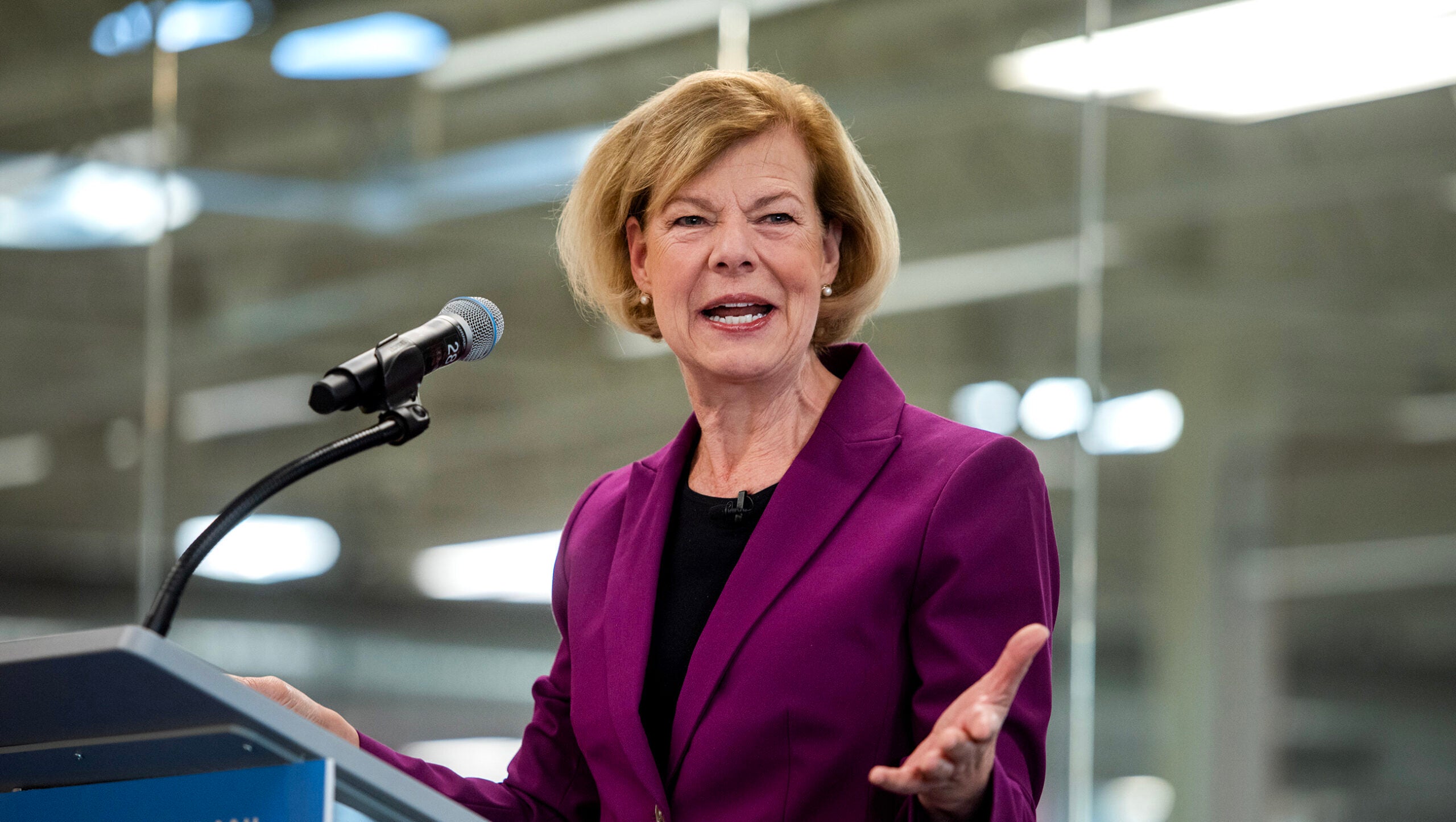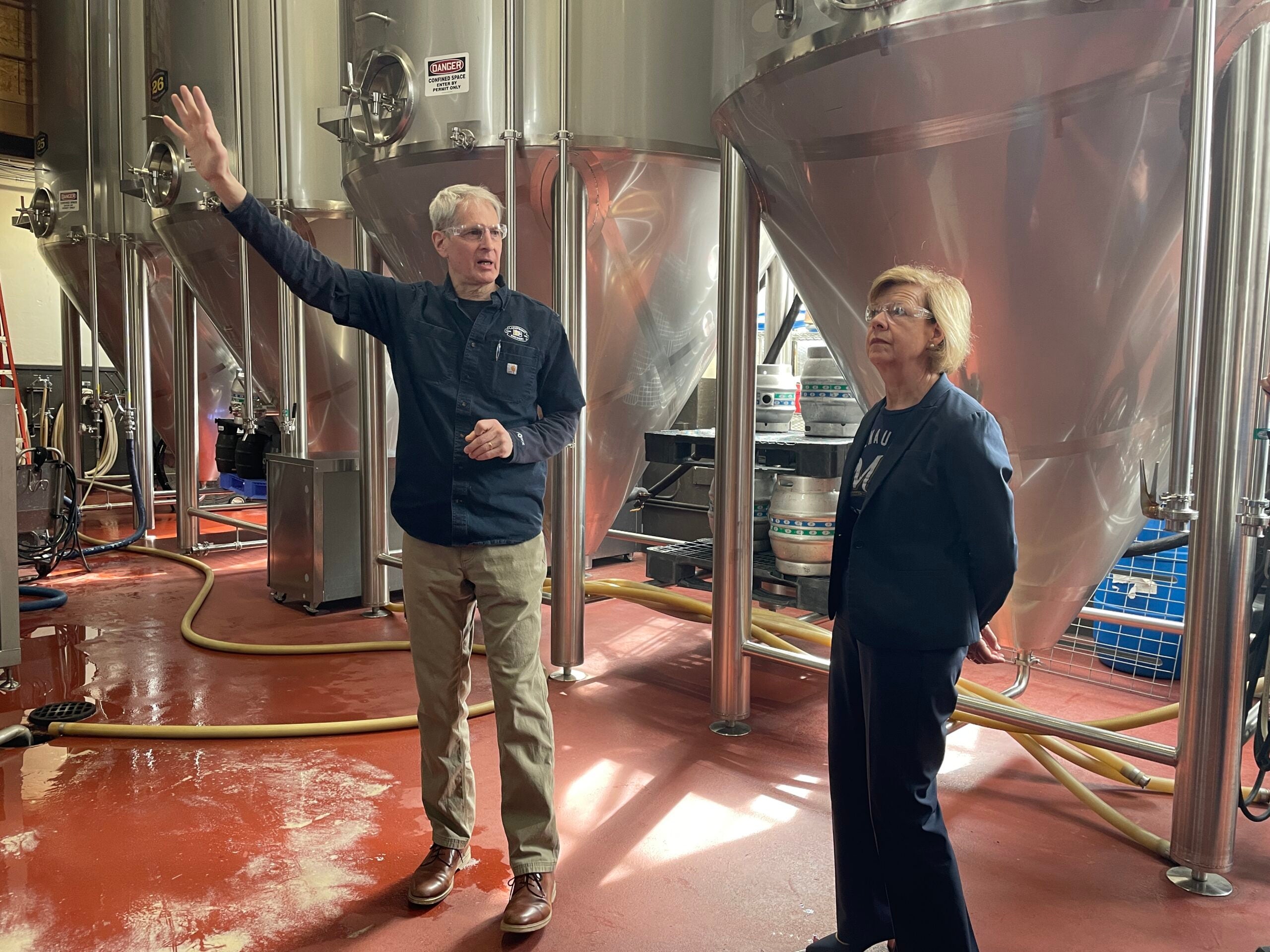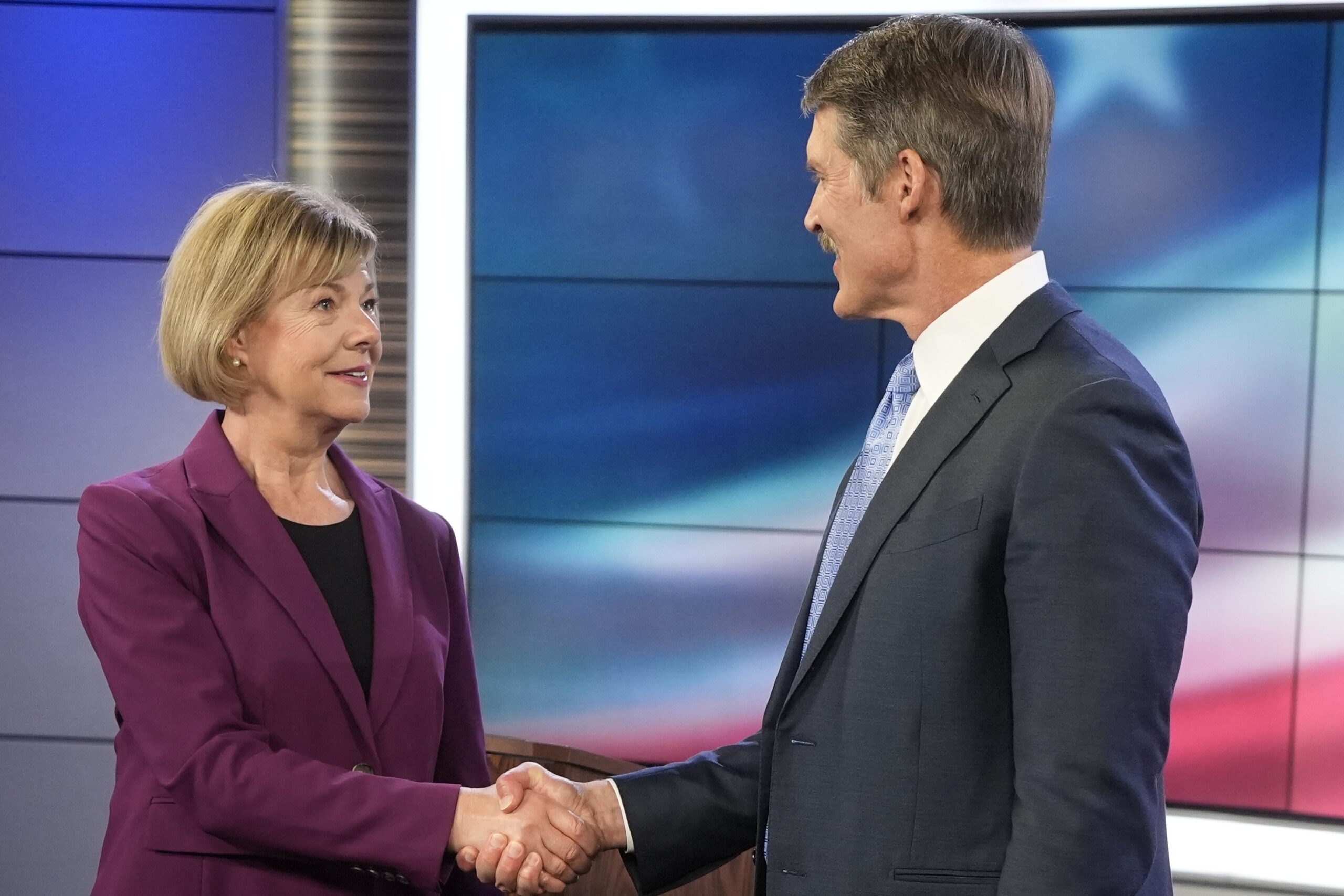A bipartisan federal bill to keep production of taxpayer-funded inventions in the United States — sponsored by U.S. Sen. Tammy Baldwin and co-sponsored by Vice President-elect JD Vance — passed in the Senate this week.
But the clock is ticking to get it passed in the House of Representatives, or it could go back to square one.
The U.S. Senate unanimously passed the Invent Here, Make Here Act on Tuesday. According to Baldwin’s office, the bipartisan bill would ensure that federally-funded innovations are manufactured in the U.S. and not in adversarial countries.
Stay informed on the latest news
Sign up for WPR’s email newsletter.
Federal law already requires taxpayer-funded inventions to be built domestically, but the requirement is often waived, Baldwin’s office said. That allows cutting-edge technologies to be licensed to foreign companies and made in places like China.
In 2022, NPR reported a battery, about the size of a refrigerator that could store enough energy to power a home, was designed by about two dozen scientists at a government lab but licensed to a Chinese company and is being built in China.
“The Invent Here, Make Here Act would prevent that from happening, and would have America in the lead of manufacturing any invention that was produced via tax dollar support,” Baldwin told WPR Thursday.
The bill would prohibit waivers for applications that would manufacture those inventions in a “country of concern,” such as China, Russia, North Korea or Iran, the senator’s office said. It would require waiver requests to have the written authorization of the president of the United States.
The legislation also improves coordination between federal agencies to prioritize domestic manufacturing of products developed using federal research, according to Baldwin’s office.
Baldwin and Republican U.S. Sen. Vance introduced the bill in June 2023. In a statement that month, the Ohio senator said the U.S. has allowed taxpayer breakthroughs to be offshored to nations like China and Russia “for far too long.”
“This legislation will bring those abuses to an end,” Vance stated. “It’s common sense: products developed with American taxpayer dollars should be manufactured by American workers on American soil.”

Baldwin said she worked with Vance’s predecessor, Republican former U.S. Sen. Rob Portman, on a similar provision in the 2023 National Defense Authorization Act that strengthened the waiver process for products developed using Department of Homeland Security research.
When new senators are elected, Baldwin said she looks for issues she can collaborate with them on. With Vance, she said she recognized they both came from states that rely heavily on manufacturing.
“I talked with him about it early last year, and we agreed that we were going to partner on this legislation,” she said. “I’ll work with anyone, if it advances Wisconsin and helps deliver for our state.”
But the bill has less than a month to advance in the U.S. House of Representatives or it will have to be reintroduced next year when a new Congress takes office on Jan. 3, 2025.
After the bill passed the Senate unanimously this week, Baldwin says she’s “very hopeful” it can pass the House before the end of the session.
“Right at the end of every session, we look for measures that can make it through the whole process,” she said. “We’re hoping that the House takes an expedited approach to passing this legislation.”
The bill is supported by the nonprofit Alliance for American Manufacturing. Scott Paul, president of the Alliance, said he’s hopeful Baldwin and Vance will “be able to lean on some of their House colleagues” to get the bill across the finish line.
“There are a couple of must-pass bills the Congress has to get to between now and the end of the year, and this makes perfect sense because it’s about American manufacturing,” Paul said. “It’s about ensuring that some of our strategic adversaries aren’t taking advantage of us, and it’s about jobs. It’s a win-win, and it’s not really partisan.”
WPR reached out to the offices of each member of Wisconsin’s House delegation about the bill. Those who responded indicated they may be open to supporting the bill.
In a statement, U.S. Rep. Tom Tiffany, R-Hazelhurst, expressed support for the ideas behind the bill.
“If American’s tax dollars are funding the innovation, then we need to ensure that we produce the product in America to benefit our businesses and workers,” Tiffany stated.
Similarly, U.S. Rep. Tony Wied, R-De Pere, said in a statement that he would support any effort, now or in the next Congress, that ensures U.S. innovation benefits domestic workers and companies.
“There is no reason American ingenuity and technology should be shipped overseas to our foreign adversaries,” Wied said.
Wisconsin Public Radio, © Copyright 2025, Board of Regents of the University of Wisconsin System and Wisconsin Educational Communications Board.


